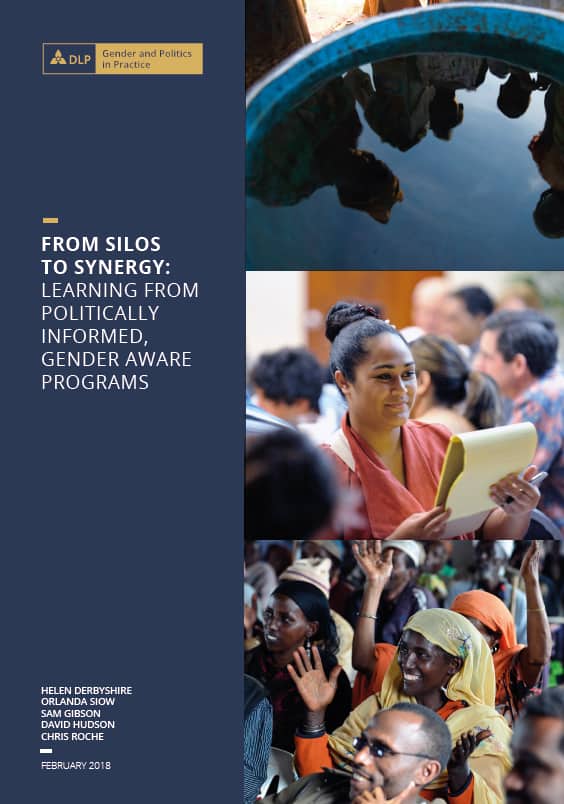This paper draws together reflections, approaches and practical lessons from development programs that are seeking both to be gender aware and to understand and engage with power and politics. It is part of the Gender and Politics in Practice (GAPP) series, and draws on 14 case studies, and on the in-depth study of Program Peduli’s work with the transgender waria community of Banjarmasin, Indonesia. It aims to provide food for thought for donor organisations and development programs.
Gender aware programming has been on the development agenda for at least a generation. Increasingly, development programs are also required to be both politically informed and adaptive, responding to recent influential work on ‘thinking and working politically’, ‘doing development differently’ and adaptive programming. However, the thinking behind these recent approaches has been justifiably criticised for being somewhat gender-blind.
Evidence from the case studies discussed in this paper shows that development practice is outstripping theory in moving beyond silos to exploit the synergy of bringing together work on power, politics and gender. Common features include a focus on supporting, nurturing, catalysing and engaging with inclusive local leadership – formal and informal, and at all levels of society. Programs are supporting local partners, where appropriate, to analyse, understand and engage with the gender and power dimensions of their context. And they are supporting local partners to join together in strategic partnerships, to find entry points for action, to frame their arguments in politically informed ways and to learn through reflection and adaptation.
These program experiences show that a politically informed approach and a gender aware approach are, to a large extent, complementary. There is a great deal to be gained from these two approaches coming together – mutual learning, better and deeper analysis, greatly strengthened practice and improved results.
It is also evident, however, that both approaches are challenging to implement effectively. Both all too easily become top-down, donor-led, technical impositions, which limits both local ownership and impact.
Enabling programs to work in ways that are politically informed and gender aware is about much more than program design and the actions of front-line staff and partners. It is fundamentally about the extent to which program management systems, and the broader political economy and culture of donor organisations, enable – or disable – these ways of working. Overall, the key factor cited by respondents in this research as enabling program success was a shared vision of change between the donor and the program management. Without this, top-down pressures prevail by default and undermine the space and incentives required.














